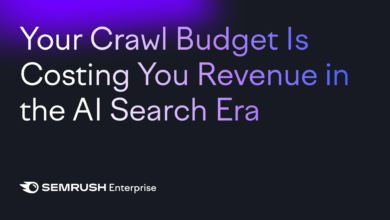Publishers Strike Back: Cloudflare Makes AI Crawlers Opt-In

▼ Summary
– Cloudflare now blocks AI web crawlers by default starting July 1, requiring explicit permission from website owners to access content.
– AI crawlers like GPTBot and ClaudeBot have caused significant slowdowns for websites by generating excessive automated requests.
– Cloudflare will detect and block “shadow” scrapers using behavioral analysis and machine learning, reversing the previous opt-out approach.
– Publishers and website owners are frustrated with AI companies scraping content without compensation or consent, often ignoring protocols like robots.txt.
– Cloudflare’s “Pay Per Crawl” program allows publishers to charge AI firms for content access, using HTTP 402 (“Payment Required”) responses.
Cloudflare’s bold new stance against unauthorized AI web scraping marks a turning point in how content is accessed online. The internet infrastructure giant has flipped the script by making AI crawler blocking the default setting for all new websites using its services. This shift empowers publishers who’ve grown frustrated with AI companies vacuuming up their content without permission or payment.
Website administrators have long complained about aggressive AI bots like GPTBot and ClaudeBot hammering their servers with relentless requests. Unlike traditional search engine crawlers that follow established protocols, these AI data harvesters often ignore robots.txt directives and revisit pages excessively, sometimes hundreds of times per second. The resulting server strain has slowed countless sites to a crawl, with some cloud hosting services reporting billions of monthly bot requests.
Cloudflare’s solution introduces two key changes. First, automatic blocking of known AI crawlers unless site owners explicitly opt in. Second, advanced detection systems to identify sneaky scrapers trying to disguise their activities. This reverses the previous burden where publishers had to manually block unwanted bots, now permission must be granted proactively.
The move comes amid growing tension between content creators and AI developers. Major publishers including The Associated Press and Condé Nast have voiced concerns about uncompensated content scraping, with some pursuing legal action. Recent court rulings favoring AI companies under fair use doctrines have only intensified the debate about digital ownership rights.
Adding teeth to its policy, Cloudflare unveiled a “Pay Per Crawl” initiative currently in private testing. This innovative approach revives an obscure HTTP status code (402 Payment Required) to create a framework where AI firms must negotiate access terms. Publishers can set their own rates, forcing data-hungry algorithms to either pay up or get locked out.
The implications are significant. With Cloudflare powering roughly 20% of the web, AI companies now face substantial roadblocks in their data collection efforts. As one publishing executive noted, the era of free content scraping may be ending, business models built on uncompensated data harvesting will need to adapt.
Traffic declines at major news outlets highlight why this matters. Some sites have seen readership drop by over 50% as AI answers displace traditional content. Without intervention, industry leaders warn that search-driven traffic could disappear entirely as AI systems increasingly provide answers directly.
While Cloudflare’s actions won’t solve every content ownership dispute, they represent a major power shift toward publishers. The coming months will reveal whether other infrastructure providers follow suit, and how AI companies respond to this new landscape where content isn’t free for the taking.
(Source: ZDNET)

